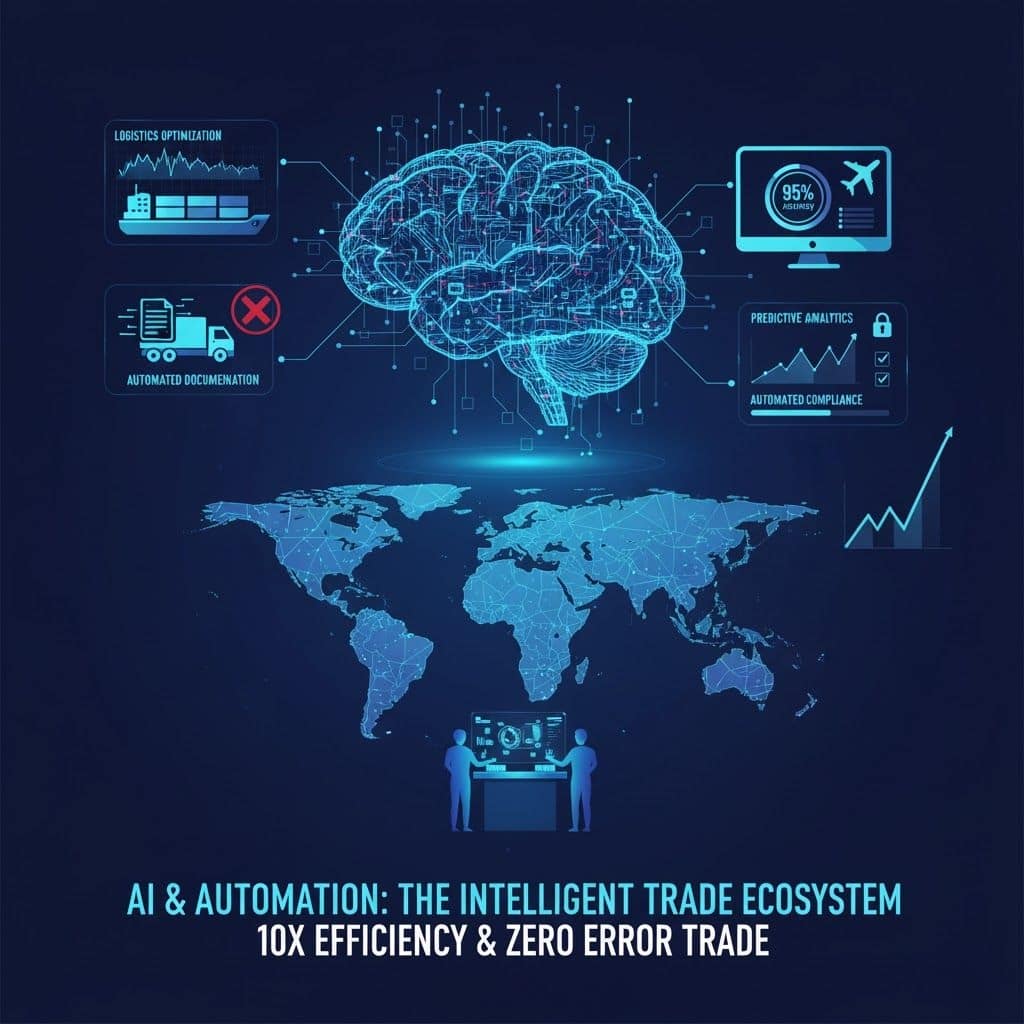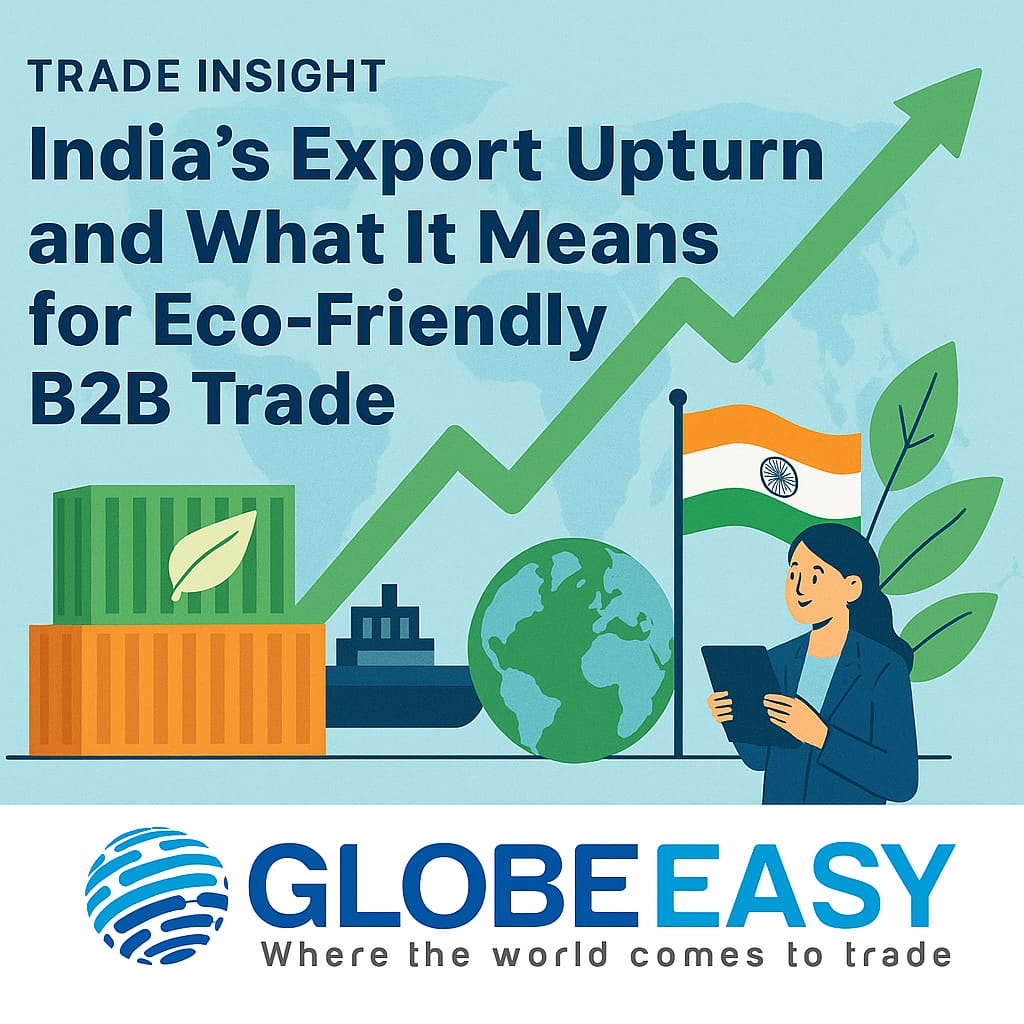Trade Insights


AI, Automation, and the Intelligent Trade Ecosystem: Beyond Efficiency to Transformation
The integration of Artificial Intelligence (AI) and advanced automation is no longer a futuristic concept but a present-day imperative transforming every facet of global trade. From hyper-optimized logistics to predictive market analysis and automated compliance, AI is moving trade beyond mere efficiency gains into a realm of unprecedented speed, accuracy, and strategic foresight. This isn’t just about doing things faster; it’s about fundamentally rethinking how trade operations are managed, from end to end.
Key Takeaways for B2B Stakeholders
- Autonomous Supply Chain Management: AI-powered systems are taking over routine decision-making, from inventory reordering to optimal route planning, creating self-correcting and adaptive supply chains.
- Hyper-Personalized Marketplaces: AI will analyze buyer behavior, preferences, and historical data to offer highly personalized product recommendations, dynamic pricing, and tailored procurement solutions within B2B marketplaces.

The Sustainability Imperative: Why ESG is the New Contract-Winner in B2B
For decades, the foundation of business-to-business (B2B) trade was a simple formula: Cost, Quality, and Delivery. Today, that formula is fundamentally obsolete. A fourth, non-negotiable factor—Sustainability—has taken its place at the top of the procurement checklist. This isn’t a temporary trend or a fleeting nod to corporate social responsibility (CSR); it is a permanent, structural shift driven by regulatory pressure, financial risk, and demanding stakeholders. The new reality is clear: if a supplier can’t prove their Environmental, Social, and Governance (ESG) credentials, they simply won’t win the contract.
This is the Sustainability Imperative, transforming the relationship between B2B buyers and suppliers from a purely transactional exchange to a deep, collaborative partnership built on shared ethical and environmental accountability.
The Pillars of the New Procurement Mandate
The imperative is powered by three converging forces that have made ESG a non-optional part of the business model.

India’s Export Upturn and What It Means for Eco-Friendly B2B Trade
India is entering a pivotal moment in its global trade journey. As exports surge and new sustainable trade opportunities emerge, B2B businesses — especially those in eco-friendly manufacturing — are positioned for massive growth.
According to recent trade reports, India’s exports of goods and services touched around US $824.9 billion in FY 2024-25, with steady growth expected to continue. The DHL–NYU Stern report predicts that India will contribute nearly 6 % of global trade growth over the next five years — ranking just behind China and the United States.
Despite supply chain disruptions and protectionist barriers, India’s exporters have performed better than the global average, growing by about 6 % compared to the world’s 4 %. This resilience underscores the strength of India’s diversified export sectors and digital trade platforms such as Globe Easy.
Shift to High-Value and Sustainable Exports
A defining trend in 2025 is India’s transition from low-margin commodities to high-value, sustainable, and technology-driven exports.
Key performing sectors include:
Global Trade Outlook 2025: How Technology & Sustainability Are Redefining Exports
Introduction
As we step into 2025, global trade is undergoing a massive shift driven by technology, sustainability, and supply chain resilience. Businesses worldwide are rethinking sourcing, manufacturing, and logistics to adapt to new realities shaped by AI-driven platforms, ESG mandates, and eco-friendly production. For exporters and importers alike, the key to success now lies in digital adaptation and sustainable trade practices.
1. The Rise of Digital B2B Marketplaces
Gone are the days when trade relied solely on exhibitions and manual sourcing. In 2025, AI-powered B2B platforms like Globe Easy are transforming global commerce by connecting verified buyers, suppliers, and service providers seamlessly. These platforms now offer integrated logistics, payments, certification, and trade finance — empowering exporters to reach new markets faster.
Trend Insight:
According to recent trade data, over 60% of cross-border B2B transactions are now initiated online, signaling a major digital transformation in global exports.
According to recent trade reports, India’s exports of goods and services touched around US $824.9 billion in FY 2024-25, with steady growth expected to continue. The DHL–NYU Stern report predicts that India will contribute nearly 6 % of global trade growth over the next five years — ranking just behind China and the United States.


